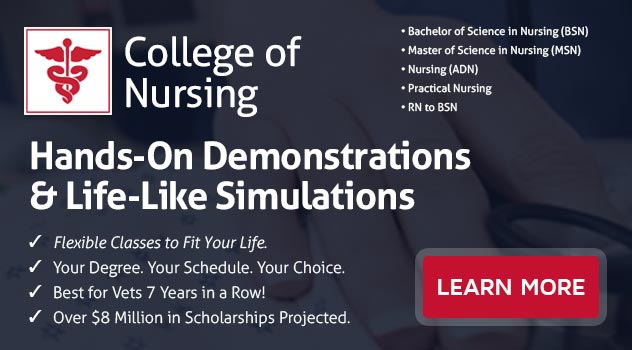Is an MSN a NP: What Does it Mean to Earn Your Masters in Nursing?
It takes a team of dedicated professionals to attend to the nation's healthcare. Nurses are among the healthcare professionals who keep the system running. Nurses serve as liaisons between doctors and patients, they provide the bulk of daily care, and sometimes roll their sleeves up to assist during emergencies.
Nurse practitioners are the most advanced nursing professionals who make decisions when it comes to treatments and exams. For long, nursing has been a demanding job. However, medical advances and healthcare reforms have pushed the demand of nurses to a higher level.
Research indicates that a nursing workforce with advanced education can ensure the nation’s population can access patient-center and high-quality care. This brings us to the idea that advancing your nursing career by completing a Master's in Nursing program is beneficial.
Benefits of Master’s in Nursing
Nursing careers are always in demand, and the trend is expected to continue. Today, nurses are advancing their education with a prestigious Master of Science in Nursing. Here are the benefits of completing this degree:
Better Hours
Being a nurse is rewarding. There's nothing like when you help someone regain their health and independence. But the working hours can be daunting. A traditional nurse is required to serve 12-hour shifts, and they also work during holidays. When you advance your career with a Master's degree, you could obtain a managerial position. At this position, you will commonly work approximately 40 hours per week, which translate to 8 hours in a day. Also, getting a managerial position usually means a better pay.
Extend Your Career
If you're a registered nurse, you're probably working in a practical setting like a doctor's office or a hospital. Many healthcare facilities are understaffed, and nurses tend to work for long hours on their feet without breaks. As a result, nurses could develop leg and back problems. But if you obtain a Master's of Science in Nursing, you could have chances to work in administrative positions. Administrative roles can be completed behind a desk. It further improves your lifestyle.
Obtain Greater Knowledge
As a nurse, if you want more in-depth knowledge in the medical field, a Master's degree program will be the ultimate choice. A degree in Master’s of Science in Nursing should enable you to explore deeper into a particular area of interest.
Obtaining an MSN is a crucial step in gaining a doctorate degree. Higher degree in nursing will bring you respect from the medical community. Today, more and more patients prefer to spend time at home rather than in hospital. The growing trend is breeding nursing specialists who work in a home-care setting for specialized treatment. Nurses with MSNs generally have that specialized education and experience to assist someone with a particular issue.
Specialization
The more specialized you’re, the more in-demand and indispensable you become. A Master’s degree in nursing opens lucrative job opportunities. Upon graduation, a new variety of nursing jobs could be available to you that weren't there when you had just a BSN.
Career Opportunities with a Master’s of Science in Nursing
Studying for an MSN opens a myriad of career opportunities in the nursing field. Such opportunities include:
Family Nurse Practitioners
When you become a family nurse practitioner, it means you could perform a new type of duties, some usually performed by a physician. You could offer counseling and education as well as procedures and tests. As an FNP, your major focus should be on disease prevention, health promotion, diagnose as well as a developing treatment for chronic and acute illnesses.
As an FNP, you could work in hospice centers, clinics, homes, private offices, schools, and nurse-managed centers. To qualify for this, you must have a certification by the State Board of Nursing and a Master's degree in Nursing. Once you become an FNP, you could join a professional organization to stay current with job expectation, workplace rights, and industry trends.
Nursing Education
To become a nurse educator, you must be a registered nurse with a master’s degree in nursing. Nursing education involves settings such as nursing schools, technical schools, and colleges. If you become a nurse educator, you might spend most of your time in a classroom or behind the desk. Nurse educators do not work 12-hours a day as clinical nurses do.
Do You Want to Move to the Next Level of Your Nursing Career?
Earning a MSN could be right for you if you want to start a new chapter in your nursing career. If you want to earn a Master of Science in Nursing Degree, ECPI University offers this program at an accelerated pace, completely online. For more information, connect with a friendly admissions counselor today.
It could be the Best Decision You Ever Make!
DISCLAIMER – ECPI University makes no claim, warranty, or guarantee as to actual employability or earning potential to current, past or future students or graduates of any educational program we offer. The ECPI University website is published for informational purposes only. Every effort is made to ensure the accuracy of information contained on the ECPI.edu domain; however, no warranty of accuracy is made. No contractual rights, either expressed or implied, are created by its content.
Gainful Employment Information – Master of Science in Nursing
For more information about ECPI University or any of our programs click here: http://www.ecpi.edu/ or http://ow.ly/Ca1ya.





